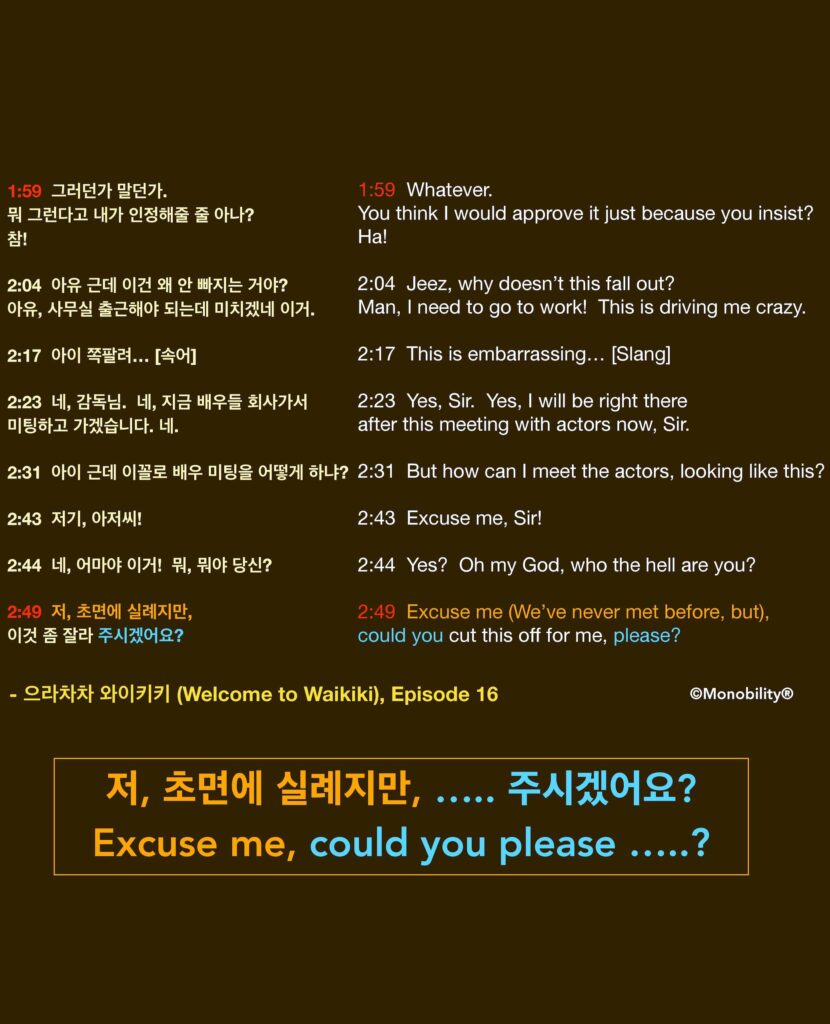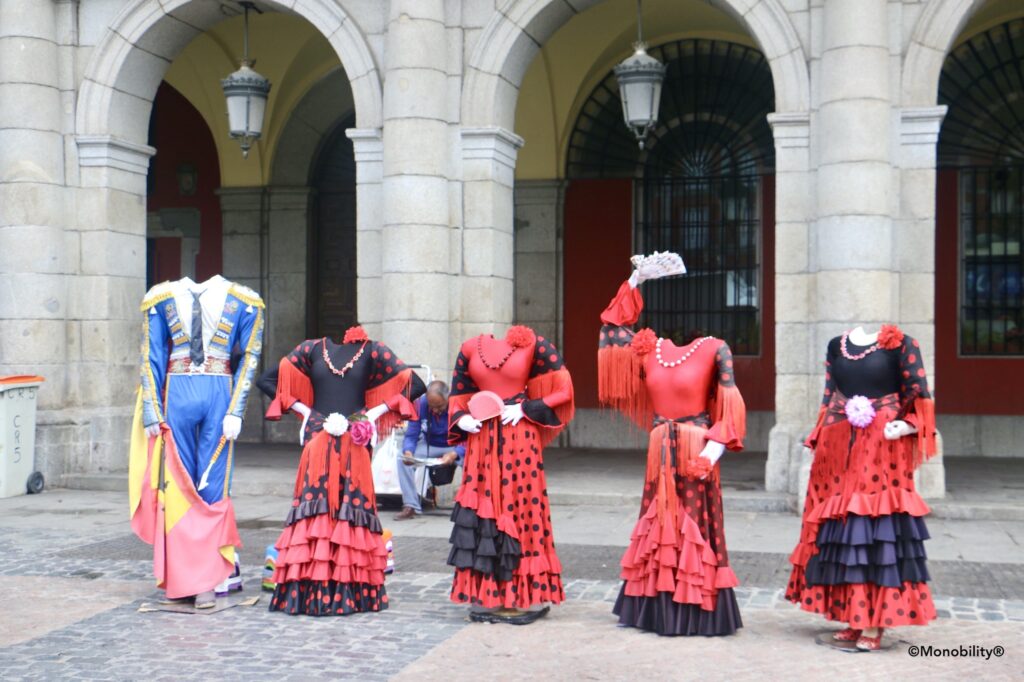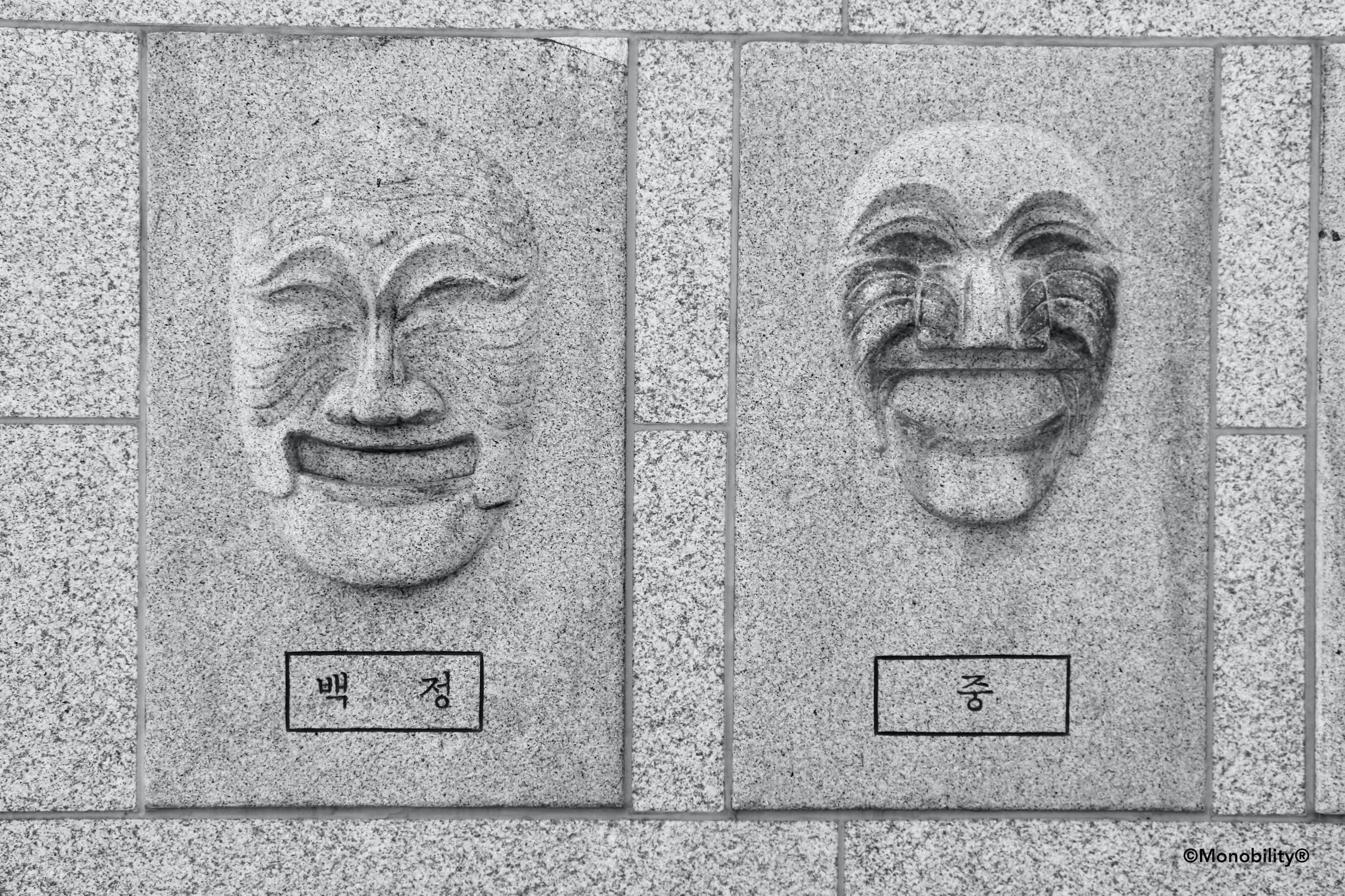It is not always easy to ask a perfect stranger to do a favor for you. If you are in a foreign country, the best way is to just say things as the locals do. In Korean, you start with “저, 초면에 실례지만,” and end with “… 주시겠어요?”
저 is an interjection of “humility” here, which shows you are hesitating to ask. 초면에 implies “We have never met before, and I know it’s too much to ask, but….” 초면 literally means “first face” (初面). By saying the 3-syllable word “초면에” before “실례지만,” you may have a better chance of getting the help you want from a total stranger. The ubiquitous “실례지만” alone would sound too terse and often insincere, when you ask for a real help. The stand-alone 실례지만 is spoken all the time as a nicety, even when someone just asks about your name or age.
Another related expression is 처음 뵙겠읍니다. Unlike 초면에, this one is a greeting, and it literally means “This is the first time I see you.” Basically it has the same social effect as 만나서 반갑습니다 (Nice to meet you.)
Watch how Koreans ask a stranger for help:

How did he say “저, 초면에 실례지만” ? How was his facial expression? 🙂
Check out our Facebook for much more:



